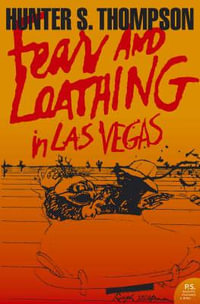
A Grounded Identidad
Making New Lives in Chicago's Puerto Rican Neighborhoods
By: Merida M. Rua
Hardcover | 26 July 2012
At a Glance
224 Pages
23.39 x 15.6 x 1.91
Hardcover
$93.90
or 4 interest-free payments of $23.48 with
orAims to ship in 7 to 10 business days
R‹¨«a traces Puerto Ricans' construction of identity in a narrative that begins in 1945, when a small group of University of Puerto Rico graduates earned scholarships to attend the University of Chicago as a private employment agency recruited Puerto Rican domestics and foundry workers. These people formed the foundation of Chicago's contemporary Puerto Rican community. In the following six decades, Chicago witnessed urban renewal, loss of neighborhoods, emergence of multiracial coalitions, waves of protest movements, and celebrations of life within which Puerto Ricans negotiated their identity, as Puerto Ricans, as Latinos, and as U.S. citizens.
Puerto Ricans arriving in the U.S. had come from an island colony, but they had had the status of U.S. citizens, and most considered themselves, and were considered to be, "white." And yet, their brownness was considered "colored," and their citizenship was second class. They seemed to share few of the rights other Chicagoans took for granted. Memory and place and loss and identity seemed interconnected. Were those of Puerto Rican descent historical anomalies of the vestiges of empire? Or genuine American citizens? What is the link for Puerto Ricans, other than the Spanish language, to other Latinos, citizens as well as undocumented migrants and documented ones?
Through a variety of sources, including oral history interviews, ethnographic observations, archival research, and textual criticism, A Grounded Identidad attempts to redress the oversight of traditional scholarship on Chicago by presenting the example of Puerto Ricans, their reconstruction from colonial subjects to second-class citizens, and the implications of this political reality on how they have been racially imagined and positioned vis-‹¨«-vis blacks, whites, and Mexicans over time.
Industry Reviews
1. A Female Network of Domestics, Student Allies, and Social Workers 2. "Non-Resident Persons": Navigating the Limitations of US Citizenship 3. Neighborhood Obituaries, Resilient Communities 4. Tangled Relations of Identidad 5. "Nobody dies on the eve of their last day": Rites of Passage and Personhood 6. Communities of Reciprocal Knowledge: Home Work, Fieldwork: Research and Accountability
Essay on Methodology and Sources Appendix A: Consent form Appendix B: Formulario de consentimiento Appendix C: Preliminary Questions to Ask in Formal and Informal Interviews Appendix D: Preguntas preliminares que hacer en entrevistas formales y en entrevistas informales Notes Bibliography Index
ISBN: 9780199760268
ISBN-10: 0199760268
Published: 26th July 2012
Format: Hardcover
Language: English
Number of Pages: 224
Audience: Professional and Scholarly
Publisher: Oxford University Press USA
Country of Publication: US
Dimensions (cm): 23.39 x 15.6 x 1.91
Weight (kg): 0.34
Shipping
| Standard Shipping | Express Shipping | |
|---|---|---|
| Metro postcodes: | $9.99 | $14.95 |
| Regional postcodes: | $9.99 | $14.95 |
| Rural postcodes: | $9.99 | $14.95 |
How to return your order
At Booktopia, we offer hassle-free returns in accordance with our returns policy. If you wish to return an item, please get in touch with Booktopia Customer Care.
Additional postage charges may be applicable.
Defective items
If there is a problem with any of the items received for your order then the Booktopia Customer Care team is ready to assist you.
For more info please visit our Help Centre.
You Can Find This Book In
This product is categorised by
- Non-FictionSociety & CultureSocial GroupsUrban Communities
- Non-FictionHistoryRegional & National HistoryHistory of the Americas
- Non-FictionHistorySpecific Events & Topics in HistorySocial & Cultural History
- Non-FictionSociety & CultureSocial GroupsEthnic StudiesHispanic & Latino Studies
- Non-FictionSociology & AnthropologyAnthropologySocial & Cultural Anthropology, Ethnography














![Hidden Figures : The Untold Story of the African American Women Who Helped Win the Space Race [Film Tie-In Edition] - Margot Lee Shetterly](https://www.booktopia.com.au/covers/200/9780008201326/null/hidden-figures.jpg)








